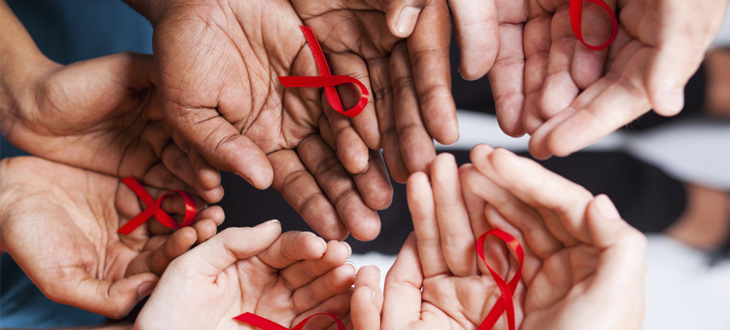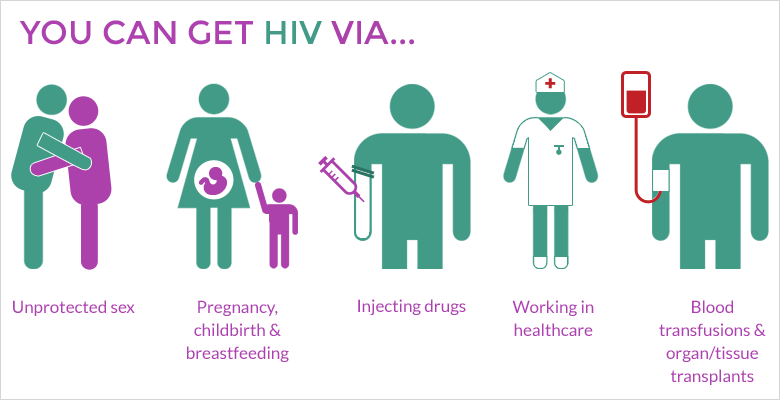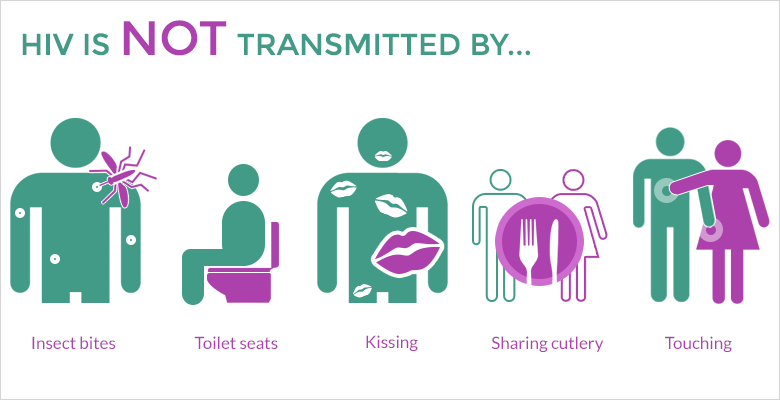Many people do not develop symptoms after getting infected with HIV. Some people have a flu-like illness within several days to weeks after exposure to the virus. They complain of fever, headache, tiredness, and enlarged lymph glands in the neck. These symptoms usually disappear on their own within a few weeks.
Following initial infection, you may have no symptoms. The progression of disease varies widely among individuals. This state may last from a few months to more than 10 years. During this period, the virus continues to multiply actively and infects and kills the cells of the immune system. The immune system allows us to fight against the bacteria, viruses, and other infectious causes.
The virus destroys the cells that are the primary infection fighters, called CD4+ or T4 cells.
AIDS is the most advanced stage of HIV infection. The definition of AIDS includes all HIV-infected people who have fewer than 200 CD4+ cells per microliter of blood. The definition also includes 26 conditions that are common in advanced HIV disease but that rarely occur in healthy people. Most of these conditions are infections caused by bacteria, viruses, fungi, parasites, and other organisms. Opportunistic infections are common in people with AIDS. Nearly every organ system is affected.
Some of the common symptoms include the following:
- Cough and shortness of breath
- Cardiac disease
- Seizures and lack of coordination
- Difficult or painful swallowing
- Mental symptoms such as confusion and forget-fulness
- Severe and persistent diarrhoea
- Fever
- Vision loss
- Nausea, abdominal cramps, and vomiting
- Weight loss and extreme fatigue
- Severe headaches with neck stiffness
- Coma
People with AIDS are prone to develop various cancers such as Kaposi sarcoma, cervical cancer, and cancers of the immune system known as lymphomas. Kaposi sarcoma causes round, brown, reddish or purple spots that develop in the skin or in the mouth. After the diagnosis of AIDS is made, the average survival time has been estimated to be 2-3 years.
Unfortunately there is no known cure for HIV/AIDS. Someone suffering from HIV, can however, improve the quality of their life and even prolong it. There are numerous drugs on the market, which helps fight HIV from progressing to AIDS. If someone is suffering from HIV it is very important that they follow a strict and healthy diet. Patients should never have intercourse with anyone else as HIV/AIDS is highly contagious through blood and bodily fluids.
Ozone Therapy can also help boost your wellness as it can stimulate the production of white blood cells, which helps fight infection, increase the oxygen levels in your body, Ozone neutralises toxins and impurities in the blood, increase cellular respiration, reduces muscle aches and pains and improves blood circulation. Ozone Therapy can also reduce fatigue, headaches, vomiting, diarrhoea and memory loss.
As previously stated, there is no known cure for HIV or AIDS. The disease effects each person differently. The only thing a patient can do is to focus on living a healthier life and following the instructions they receive from their Doctors. Please consult your Doctor before making any major changes to your lifestyle.
50% of people with HIV, don’t know they have it. Get tested today…!
Feel free to contact us with any questions:
Salvagente
+27 (0)72 422 1967
Sign up for our weekly newsletters to keep up to date with the latest health and Ozone Therapy news:
[contact-form][contact-field label=’Name’ type=’name’ required=’1’/][contact-field label=’Email’ type=’email’ required=’1’/][/contact-form]










1 comment
Join the conversationLouise Pyper - April 11, 2016
To find your nearest Ozone Therapy outlet, click here: https://salvagente.co.za/branches/